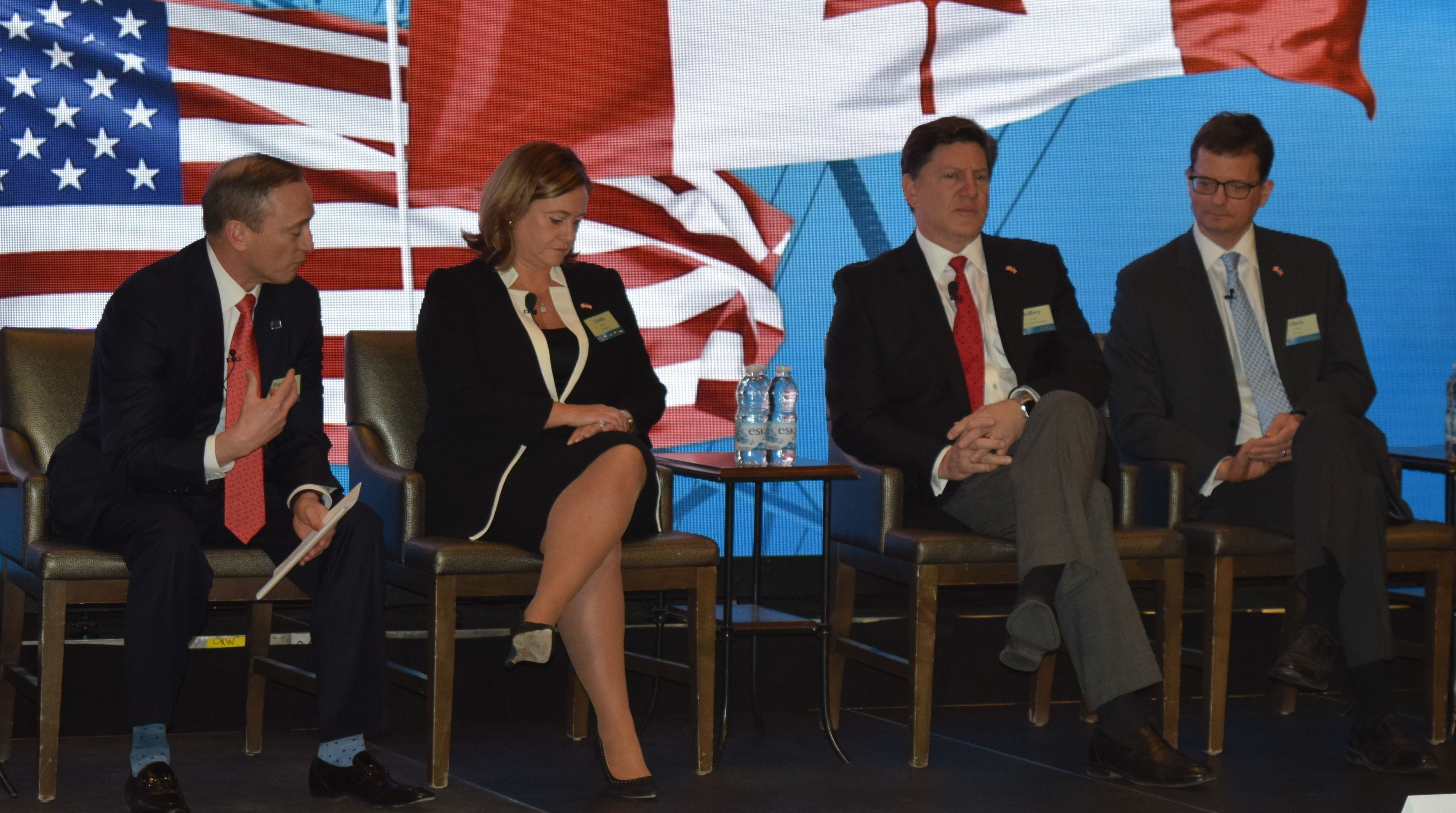Leaders from across the North American energy sector gathered in Toronto for the Fortis Energy Exchange, focused on fostering dialogue on the industry’s biggest opportunities and challenges.
Ontario Power Generation outgoing president and CEO Jeff Lyash joined BC Hydro president and COO Chris O’Riley and ITC Holdings president and CEO Linda Apsey for a conversation on opportunities to share Canadian power generation with global markets, primarily the United States. In his remarks, Lyash suggested that there are economic benefits in cross-border markets, maximizing the payback for energy production by establishing a new customer for the production volumes not used by Canadian consumers. This is especially valuable when renewable resources such as solar and wind are at peak performance, but the power is not needed on the Ontario grid. That power could be shifted to the American market.
That cross-border connectivity has real potential between two markets on the west coast of North America, British Columbia and California, according to O’Riley. With the Site C Clean Energy Project (and big hydro in general) providing a good investment in the backbone of the energy system in B.C., according to O’Riley, the chance to share some of that baseload with California when renewable resources are not providing the needed generation.
Exporting energy is not new for Canada. Canada already exports approximately 11 per cent of electricity, second only to Germany globally. And there are several power sharing projects in the pipeline currently, including the Manitoba-Minnesota Transmission Link, the Lake Erie Connector, and the New England Clean Power Link. That’s in addition to the ongoing plans to ship Liquified Natural Gas (LNG) to markets in Asia, specifically to Japan.
But there are also opportunities to share in the development of new energy technologies as well, ones that could be beneficial across the globe, according to Lyash. Work is being done on the development of small modular nuclear reactors, ones that could support such consumers as mining operations and small communities currently using diesel power generation. Lyash suggested that these are the kinds of next-generation energy technologies that provide an opportunity for experts in both Canada and the U.S. to work together.
For more information on the speakers and subjects featured at the Fortis Energy Summit, visit: https://fortisenergyexchange.com/
















